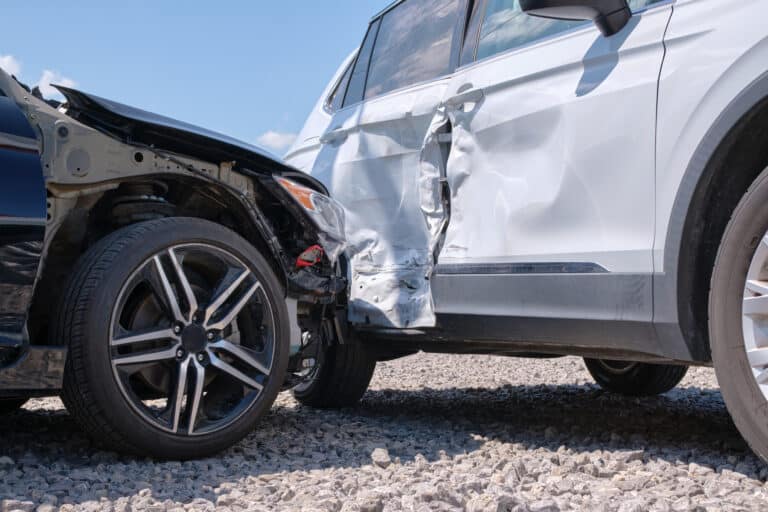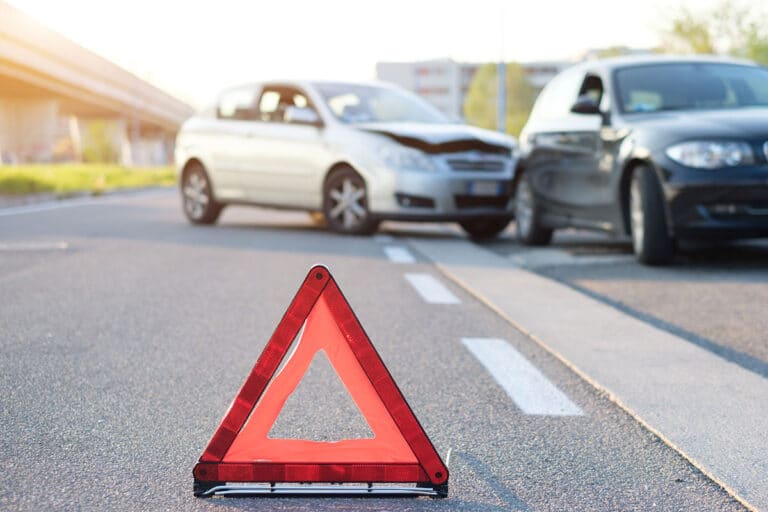Uber Car Crash – Lyft Accident: What to Do
Uber, Lyft and other rideshare companies have fundamentally changed the way that people travel on a daily basis. Whether it be for personal or business travel, the benefit of using these transportation platforms cannot be denied. Such benefits include: ease of use, cost, and no cash transactions, just to name a few. However, with all of the benefits to these platforms, as with riding in any car, there is still the risk of being involved in a car accident and suffering injury. When a car accident involves an Uber or a Lyft vehicle, whether you are a passenger, driver, or the other car, there are certain things that you should know and be aware of: including what to do at the scene, reporting to the insurance company, and what insurance is available to pay for your injuries and damages.
What To Do In The Immediate Aftermath of the Crash
The first thing you should do after you are involved in any car accident is take a deep breath and assess for injuries. If you or anyone else involved in the accident are injured and are in need of emergent medical treatment, immediately call 911 and request and ambulance. Even if there are no serious injuries or property damage, it is still a good idea to call the police. You may need a police report to file a claim or get your vehicle repaired. Additionally, having the police come to the scene to assess for who is at fault can assist with resolving differences of opinion on who is responsible for the collision.
Take photographs to document what happened. Take photographs of the scene and all vehicles involved. This is particularly important if you are a passenger in the rideshare vehicle, because you will not be able to take or access the photographs at a later point in time without working through the insurance companies to obtain the information. Insurance companies will often times withhold this information until litigation, as such, if you have the opportunity to obtain and gather the information at the scene, please do so.
In addition to taking photographs and calling the police, there is additional information that you need to obtain. From all drivers involved (other than yourself), you should obtain his or her name, contact information, insurance company name, phone number, and policy number, and vehicle description. From the rideshare driver – you should obtain the insurance information for the rideshare company as well as the driver’s personal automobile insurance information. At the scene, it may not be clear who and what insurance company would be responsible for any potential damages, as such, it is better to cover and gather all information you can early on. For example, although uncommon, the rideshare driver and the rideshare Company may both have insurance that covers injuries arising from the car accident.
Reporting and Making a Claim with Uber/Lyft
If you have been in an accident as a passenger in an Uber or Lyft or were hit by an Uber or Lyft driver, you should report the incident directly to the rideshare company. If you were a passenger, you can directly report accidents through the application. You should also report the accident to the rideshare driver’s personal automobile insurance. However, it is important when making a claim with these insurance companies to only report the accident and not divulge more information than is necessary. For example, individuals may say that they are not injured on the day of the accident, only to wake up the next morning in pain and requiring medical attention. This gives the insurance company a false sense of your injury may not be as serious as it is.
Insurance Is Available To Compensate for Injuries Following An Accident Involving Uber/Lyft
Below are two charts that show that Uber and Lyft have substantially similar structures and insurance up to $1 million in coverage depending upon the status of the application the driver is using:
Therefore, both companies have three categories of insurance coverage in the case of a crash.
- If the driver had the Uber or Lyft Application off at the time of the crash, then the driver’s personal insurance policy is the only policy that would be applicable, regardless if the coverage is for property damage, bodily injury, or uninsured/underinsured (“UM/UIM”) coverage.[1]
- If the driver had the Uber or Lyft Application on at the time of the crash but had not accepted a ride at the time of the crash, then Uber and Lyft will supplement the driver’s personal insurance policy, if any, only if the driver was at fault for the collision and up to the limits of $50,000 per person, $100,000 per accident, and $25,000 in property damage per accident. There will be no additional coverage through Uber or Lyft for UM/UIM during this category.
- If the driver had the Uber or Lyft Application on and was in the period of time between accepting a ride and dropping of a ride, then Uber and Lyft will supplement the driver’s personal insurance policy, if any, regardless of whether the driver was at fault for the collision or not. During this time, both Uber and Lyft will pay up to $1 million per accident for bodily injury and UM/UIM coverage – this would include the driver, passengers, and individuals in the other vehicle(s). They additionally will contribute to property damage as per the charts.
Consider Consulting or Hiring an Attorney
In sum, the coverage available to you when a car crash involves Uber and Lyft is dependent upon a number of factors and can be a complicated situation to navigate without the assistance of an attorney. If you have been hurt in an accident with an Uber or Lyft vehicle, whether as a passenger, driver, or other vehicle, it is important to understand what insurance coverages are available to you and how to navigate obtaining the information that you need from these companies. An attorney will gather this information and will assist in assuring that you are receiving top dollar for the injuries that you suffered in the crash.
As such, if anyone was injured in the accident, it is best to consult an experienced attorney. Here at Ogborn Mihm LLP, our experienced attorneys can help you maximize your recovery if you are injured. We can advise you on a wide range of issues, including making sure you are fully compensated for your vehicle, how to talk to the insurance companies, to making sure that you are getting the best medical treatment available. We work on a contingency fee basis, which means there is no legal fee unless we recover compensation for your injuries.
[1] Property damage insurance is the amount to repair the physical damage done to the vehicles involved in the collision; bodily injury insurance is the amount owed by the at fault driver; UM/UIM insurance is available were the at fault driver is either uninsured or is underinsured meaning that he or she does not have enough insurance money to compensate you for your damages.








